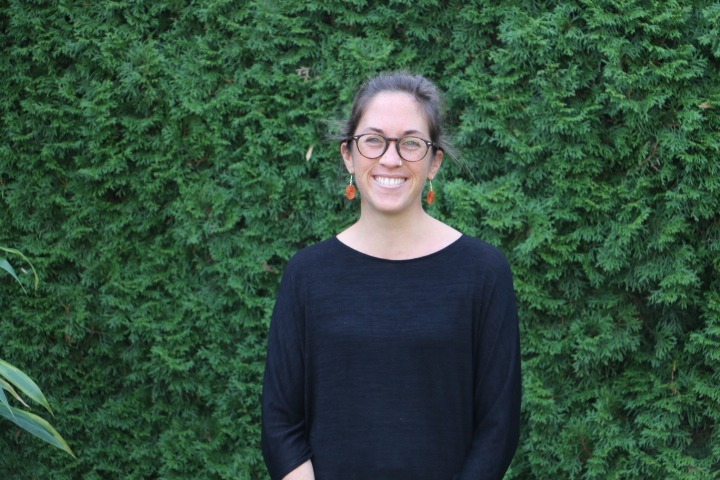
As a therapist who works primarily with Christians, and as someone who has served in various ministry contexts – I have noticed a common thread at times throughout our faith communities. There can be a reluctance to unpack, and to grow in knowledge of the Self. There is an unspoken belief which I bump into in various Christian spheres, a belief that diving too far into the Self for insight is unwise, and that understanding and insight is primarily found in faith contexts.
It is interesting to note this theme in today’s context. In our culture, there is an increasing emphasis on the knowledge of “Self.” A quick search of items related to the popular Enneagram personalities results in 4000 hits on Amazon. A scan of the books at a local bookstore reveals themes related to wellness, mindfulness and becoming the “best you.” TED talks, webinars, and books by renowned researchers and popular psychologists are growing in popularity, let alone the thousands of podcasts available in the palm of your hand. We are constantly searching for answers to unravel the unending mystery of our suffering and to find the steps for change and access the keys for growth.
Within this context, Christians have stood at a cautious distance at times, unsure if there is truly much within the Self that requires such focused time and investment. I notice a wide range of responses from faith-focused clients when it comes to exploring their inner worlds. At times, Christians wonder whether diving into exploring Self is a black hole that causes us to circle and spiral into ourselves, away from God and Other. Rather than trying to untangle ourselves, Christians remind one another to “fix our eyes upon Jesus” and trust that our journey of change and healing will naturally fall into place as we press onwards in our journey of discipleship and spiritual growth. As we look at the suffering and pain of the world around us, we see the promises of Pop psychology eventually ring empty. It is hard to believe that we will ever find the answers we need through wading into the mess that is our broken humanity, our Selves.
As some Christians wrestle with the reluctance to dive into the Knowledge of Self, we choose rather, to focus on a Knowledge of God. So, instead of the local bookstore, we hit the church libraries, which are filled with respected theologians. We listen to our favourite sermons, or purchase the “Christian” version of books about the Enneagram. We think, “Surely, this will bring about the deep transformation I know I so deeply need. If I know enough about God, that will bring about the transformation I long for.”
Until eventually, we find ourselves with one foot in each pool. We feel the pull and tension in both in both directions – moving into God and moving into Self, but often we can experience these being in opposition to one another. We pursue the knowing of Self as a “secular” pursuit, as something of an indulgence (like self-care), as we figure out our humanity. The pursuit of knowing God takes place within sacred spheres – like the church and faith groups. However, time and again, I hear the following statements as I sit with individuals:
“But that is all in the past, it doesn’t affect me now. I need to keep my eyes fixed on God and forget about it.”
“I am not sure what emotion I feel; but what I know is God is good all the time.”
“If God were really good, that experience wouldn’t have happened. I don’t know how to even begin to talk to Him about that, so I don’t.”
There is a common thread that emerges throughout all of these statements. It may be hard to pinpoint at first, but once you start looking, you begin to see it everywhere. It is evidence that the two individual journeys of knowing Self and God happen in isolation. It is the gulf that can exist between our experience as a person and our experience of God.
Think of an image of two ladders placed next to each other. One ladder represents the Knowledge of Self, the other, the Knowledge of God. We invest time and energy into either one of these journeys, descending rung by rung – but all too often, contact between these two ladders rarely takes place.
In Confessions, Saint Augustine wrote this prayer: “Grant, Lord, that I may know myself that I may know thee.” In this short reflection, Augustine highlights the fact that knowing ourselves, is in fact a key to knowing God. This prayer then, acts as a bridge between the two ladders of knowing.
As we descend rung by rung, in our knowing of Self, we begin to understand there is more to ourselves than initially meets the eye. We begin to understand ways we are shaped by our stories, experiences and biology. Our eyes become opened to false beliefs and selfish impulses – and as we descend deeper, we see how these behaviours have been informed by old wounds and unspoken fears.
To journey down this ladder of Self can be terrifying indeed. However, delving into some of the previously unknown parts of Self can actually bring about a deeper knowing of God – if we have the courage to lift our eyes and look to Jesus in our vulnerability. In his book, The Gift of Being Yourself: The Sacred Call to Self-Discovery, David Benner, a psychologist and spiritual director, writes “To truly know love, we must receive it in an undefended state – in the vulnerability of a ‘just as I am’ encounter.” This is the place where true Knowing occurs. When we meet Jesus in our vulnerability and fear, and encounter Him at depths to which we have not descended before, the result is a far deeper knowing – a ‘gut’ knowing. This truly has the potential to undo the way we know ourselves and transform the way we experience God’s love.
If knowledge of Self is dead-end pop psychology, then knowledge of God without allowing him to personally touch us, can quickly turn into empty religion. For either journey of knowing, they need to be in constant dialogue with one another.
Benner writes: “People who have never developed a deep personal knowledge of God will be limited in the depth of their personal knowledge of themselves. Failing to know God, they will be unable to know themselves, as God is the only context in which their being makes sense. Similarly, people who are afraid to look deeply at themselves will of course be equally afraid to look deeply at God. For such persons, ideas about God provide a substitute for direct experience of God… Both God and Self are most fully known in relationship to each other.”
What then does this look like practically? A starting place could be to begin to slow down, notice and be curious about your emotional process. What emotions am I feeling right now? What might those emotions be telling me about the currents running through me below the surface? Peter Scazzero, the author of Emotionally Healthy Spirituality, writes: “To feel is to be human. To minimize or deny what we feel is a distortion of what it means to be image bearers of God. To the degree that we are unable to express our emotions, we remain impaired in our ability to love God, others, and ourselves well. Why? Because our feelings are an important part of what it means to be made in the image of God. To cut them out of our spirituality is to slice off an essential part of our humanity.”
As you begin to identify and access some of your deeper emotional processes – sit with them. Before you dismiss them, “turn them off” or push them deeper, try to bring your emotions with curiosity to Jesus. What might He want to say about your sadness? Your fear? Your hopes? How does His response to you in turn shape the way you know God?
It is the journey of helping clients bridge these two ladders, that is my passion as a counsellor. When individuals are able to connect two kinds of “knowing”, which have previously only been known in isolation, is where I see the most profound transformation and healing take place. Our experiential knowing of both God and Self is bridged when we have the courage to look at ourselves honestly, and then have the courage to turn to God in ways we have not been able to before, and listen to His response.
If you found this article helpful and would like to find healing and freedom for yourself, discover how Mercy Seat Ministries can help.
Scazzero, P. (2006). Emotionally healthy spirituality: Unleash a revolution in your life in Christ. Nashville, TN: Thomas Nelson.
Benner, D. (2015). The Gift of Being Yourself: The Sacred Call to Self-Discovery. Downers Grove, IL: Intervarsity Press.

Andrea is a Registered Clinical Counsellor with natural intuition and powerful skills to assist in each counselling journey. Her passions are to make space for God in her sessions, to help individuals reconnect with hope, and to facilitate discovery of wholeness in self and fullness in Christ.
